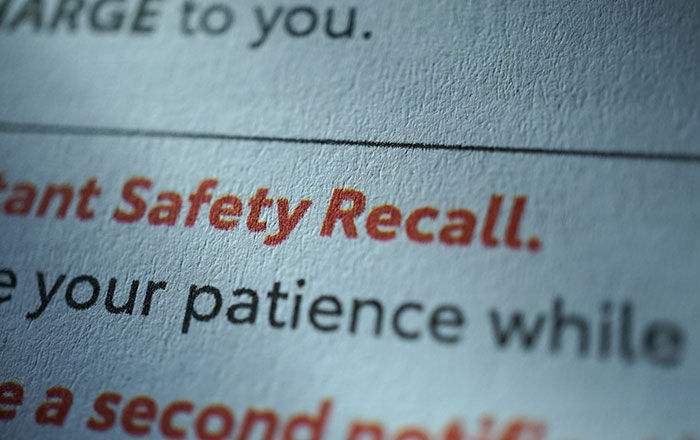When you’ve been injured in an accident, one of the first steps toward recovery is pursuing compensation. But many people are unsure of the difference between filing a personal injury claim and filing a lawsuit. While both processes seek compensation for your injuries, they involve different stages, strategies, and levels of legal action.
In this post, we’ll explain what separates a personal injury claim from a lawsuit under South Carolina law, how each process works, and when it’s time to move from negotiation to litigation. We’ll also connect this topic to related ones, such as demand letters, comparative negligence, and witness evidence, to give you a complete picture of how a personal injury case progresses.
What Is a Personal Injury Claim?
A personal injury claim is the first step most accident victims take after being hurt due to someone else’s negligence. It’s typically filed with the at-fault party’s insurance company and handled through negotiations rather than court proceedings.
For example, if you’re injured in a car accident, your personal injury lawyer will file a claim with the negligent driver’s auto insurer. The goal is to reach a fair settlement that compensates you for:
- Medical bills and rehabilitation
- Lost wages and future earning capacity
- Pain and suffering
- Property damage
A personal injury claim is designed to resolve matters out of court, often through negotiation or mediation.
If you’ve read our earlier article What Is a Demand Letter in a Personal Injury Case?, you’ll recognize that the demand letter usually initiates this process, it’s the formal document that tells the insurer how much compensation you’re seeking and why.
What Is a Personal Injury Lawsuit?
A personal injury lawsuit, on the other hand, begins when negotiations fail to result in a fair settlement. At this point, your attorney files a formal complaint in civil court against the responsible party (the defendant).
This legal document outlines:
- The facts of the case
- The nature of your injuries
- The defendant’s negligent conduct
- The damages you’re seeking
Once the lawsuit is filed, the case enters the litigation phase, which includes discovery, depositions, motions, and, if necessary, trial.
While this process can take longer, it also gives you the opportunity to let a judge or jury decide the outcome, which may lead to higher compensation, especially when insurers have acted unfairly.
The Main Differences Between a Claim and a Lawsuit
| Aspect | Personal Injury Claim | Personal Injury Lawsuit |
| Filed With | Insurance company | Civil court |
| Goal | Settlement without trial | Court judgment or jury verdict |
| Process | Negotiation, mediation | Discovery, motions, trial |
| Timeline | Usually faster | Can take months or years |
| Legal Costs | Often lower | Higher due to litigation |
| Control | You and your lawyer negotiate | Judge or jury decides outcome |
Most cases begin as claims and only progress to lawsuits if negotiations break down.
How a Claim Becomes a Lawsuit
Here’s how the process typically unfolds:
- Investigation: Your attorney gathers evidence, including medical records, photos, and witness statements, to build your case. (See The Role of Witnesses and Evidence in a Personal Injury Claim for more detail.)
- Demand Letter: Your lawyer sends a demand letter outlining your injuries and the compensation requested.
- Negotiation: The insurance company reviews the claim and makes a settlement offer.
- Settlement or Lawsuit: If the insurer refuses to pay a fair amount, your lawyer may file a lawsuit.
Even after a lawsuit is filed, settlement discussions often continue. Many cases resolve before reaching trial once insurers realize you have strong legal representation.
How Comparative Negligence Affects Both
South Carolina’s comparative negligence law applies to both claims and lawsuits. If you’re found partially at fault (but less than 51%), your compensation is reduced by your percentage of responsibility.
For example, if you were injured in a truck accident and found 20% at fault, your total compensation would be reduced accordingly, whether settled in negotiation or decided in court.
For a deeper explanation of how this law impacts your recovery, check out our post Understanding South Carolina’s Comparative Negligence Law.
When to Move from a Claim to a Lawsuit
You may need to escalate your case to a lawsuit if:
- The insurance company denies liability for your injuries.
- The insurer offers a lowball settlement that doesn’t cover your expenses.
- There are multiple parties involved (common in trucking or construction cases).
- The statute of limitations is approaching and no settlement has been reached.
In South Carolina, the general statute of limitations for personal injury cases is three years from the date of the accident. For claims involving government entities, it’s typically two years.
An experienced South Carolina personal injury attorney will monitor these deadlines carefully to ensure you don’t lose your right to compensation.
The Importance of Legal Representation
Handling a personal injury claim or lawsuit alone can be overwhelming. Insurance companies have entire legal teams trained to minimize payouts, and once your case enters litigation, strict procedural rules apply.
A skilled personal injury lawyer will:
- Investigate your claim thoroughly
- Handle all negotiations with insurance companies
- File your lawsuit before deadlines expire
- Represent you in court if necessary
At McWhirter, Bellinger & Associates, we prepare every claim as if it might go to trial, giving you leverage during settlement talks and a strong position if litigation becomes necessary.
Choosing the Right Path: Claim vs. Lawsuit
Not every case needs to go to court, but not every claim can be fairly resolved through negotiation either. The right choice depends on the facts of your case, the strength of your evidence, and the behavior of the insurance company.
Your attorney will evaluate your injuries, expenses, and likelihood of success in court to decide whether to settle or litigate.
If you’ve read our recent post When to File a Wrongful Death Claim in South Carolina, you already know how filing deadlines and liability issues can shape this decision, and why professional legal advice is essential.
Get Help from McWhirter, Bellinger & Associates
Whether you’re filing your first claim or considering a lawsuit, you deserve experienced legal representation that will fight for your best interests from start to finish.
Call McWhirter, Bellinger & Associates at 803-653-6449 today for a free consultation with one of our knowledgeable South Carolina personal injury lawyers.
We proudly serve clients across South Carolina, including Columbia, Lexington, Orangeburg, Camden, Sumter, Aiken, and Newberry.
At our firm, we believe in standing up for the injured, and ensuring that no one has to face insurers or courtrooms alone.

















